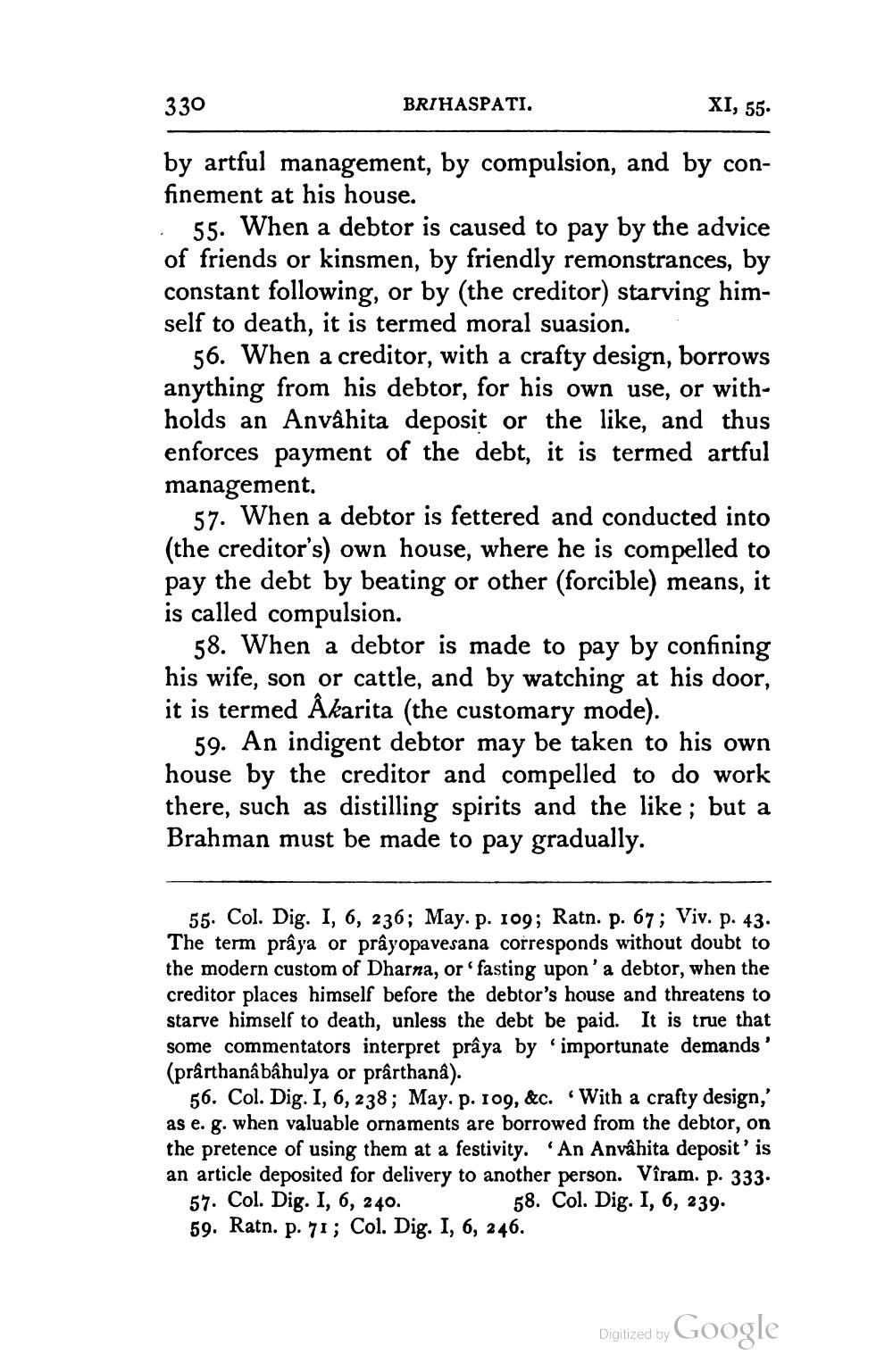________________
330
BRIHASPATI.
XI, 55.
by artful management, by compulsion, and by confinement at his house. · 55. When a debtor is caused to pay by the advice of friends or kinsmen, by friendly remonstrances, by constant following, or by (the creditor) starving himself to death, it is termed moral suasion.
56. When a creditor, with a crafty design, borrows anything from his debtor, for his own use, or withholds an Anvähita deposit or the like, and thus enforces payment of the debt, it is termed artful management.
57. When a debtor is fettered and conducted into (the creditor's) own house, where he is compelled to pay the debt by beating or other (forcible) means, it is called compulsion.
58. When a debtor is made to pay by confining his wife, son or cattle, and by watching at his door, it is termed Åkarita (the customary mode).
59. An indigent debtor may be taken to his own house by the creditor and compelled to do work there, such as distilling spirits and the like; but a Brahman must be made to pay gradually.
55. Col. Dig. I, 6, 236; May. p. 109; Ratn. p. 67; Viv. p. 43. The term prâya or prayopavesana corresponds without doubt to the modern custom of Dharna, or fasting upon' a debtor, when the creditor places himself before the debtor's house and threatens to starve himself to death, unless the debt be paid. It is true that some commentators interpret prâya by importunate demands' (prarthanâbâhulya or prarthanâ).
56. Col. Dig. I, 6, 238; May. P. 109, &c. With a crafty design,' as e. g. when valuable ornaments are borrowed from the debtor, on the pretence of using them at a festivity. An Anvâhita deposit' is an article deposited for delivery to another person. Vîram. p. 333.
57. Col. Dig. I, 6, 240. 58. Col. Dig. I, 6, 239. 59. Ratn. p. 71; Col. Dig. I, 6, 246.
Digitized by Google




